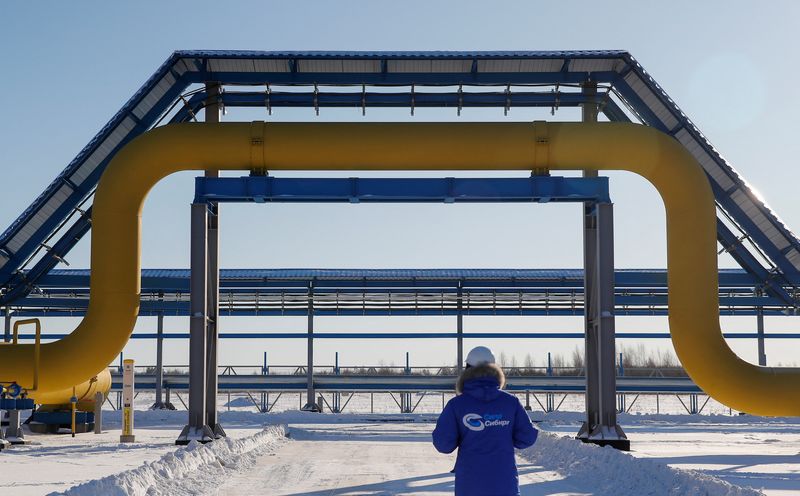MOSCOW (Reuters) – Gazpromtrans, the subsidiary of Russia’s gas monopoly Gazprom in charge of rail shipments, stopped taking orders to transport liquefied petroleum gas (LPG) to Ukraine from Feb. 18, according to a note sent to its clients and seen by Reuters.
The note cited rising political tensions between Russia and Ukraine for the move.
“Due to the escalation in Ukraine and to avoid potential risks (such as) damage to railcars owned by Gazpromtrans… the company has to suspend taking orders for shipments of volumes to Ukraine from Feb. 18 until further notice”, the note said.
The company asked its clients to consider other destinations for their supplies. Gazpromtrans did not respond to a request for comment on the note.
Tensions over a Russian troop build-up near Ukraine’s borders have risen sharply since Russian President Vladimir Putin on Monday signed decrees recognising the independence of the Luhansk and Donetsk regions controlled since 2014 by pro-Russian separatists.
The company said in the document that it will fulfil orders already made and confirmed, but requested full compensation if any damage is caused to its property during deliveries.
Most LPG supplies to Ukraine by Gazpromtrans are spot sales, or sales for immediate delivery, two traders familiar with supplies said.
Demand for spot is currently low due to seasonal factors, with most winter orders already fulfilled by term contracts, but if the situation persists until March or April, some shortage of LPG supply may be felt in the Ukrainian market, they added.
In 2021 Gazpromtrans shipped 64,000 tonnes of LPG to Ukraine, some 10.7% of all Russian supplies of the fuel to the country, according to rail shipments data in Refinitiv Eikon.
(Reporting by Damir Khalmetov, writing by Olga Yagova)



















